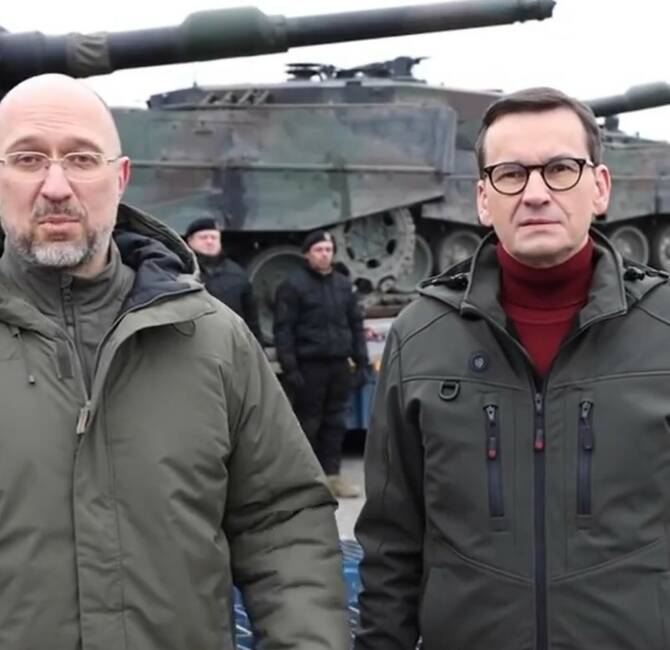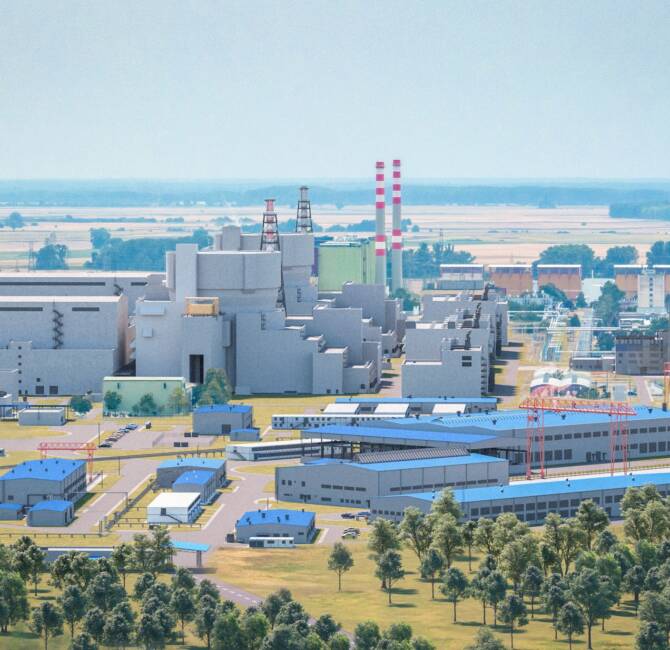Visegrád Group – Fears of a military escalation in the conflict between Russia and Ukraine came true at dawn on Thursday, 24 February, when the Russian army launched an assault on Ukraine. Faced with this situation – unprecedented in Europe since the Second World War – the leaders of the countries of the Visegrád group unanimously condemned the invasion of Ukraine by Russia.
Morawiecki: “Do not allow Putin to cross another Rubicon’”
In Warsaw, first of all – Poland as usual spearheading European solidarity towards Ukraine – Prime Minister Mateusz Morawiecki declared:
“Putin has invaded an independent country and we must stop him.
[…] We must be very united when it comes to introducing serious sanctions. […]
We cannot allow Putin to cross another Rubicon. We must act with utmost haste, otherwise we shall fall.
[…] We, as Europe, buy a lot of gas and oil from Russia. Vladimir Putin […] uses this money to finance aggression and invasions”. Polish President Andrzej Duda also spoke with his Ukrainian counterpart Volodymyr Zelensky, as the Russian army began bombing Kiev.
Lipavský: “Barbaric aggression”
In Prague, Czech Foreign Minister Jan Lipavský also bluntly condemned “Russian aggression”: “I strongly condemn the Russian invasion of Ukraine.
The Kremlin’s decision to launch a completely unprovoked attack is unacceptable and in contradiction to international law. Together with Allies, we will respond to this barbaric act of aggression. ”
which, in turn Prime Minister Petr Fiala described as an “unjustified act of aggression”.
Zeman: “The madman must be isolated”
Czech President Miloš Zeman – traditionally less harsh with Russia – also joined in this condemnation:
“A few days ago I said that the Russians were not crazy and that they would not attack Ukraine. I admit I was wrong.
[…] I believe that the situation will calm down, not by a cowardly compromise, but by a strong reaction against the aggressor. […] Mad people must be isolated. […] It is time to reach much more severe sanctions than those initially planned, by which I mean above all a sanction concerning the SWIFT” [the international system of interbank payments, ed.].
Heger: “The absolute priority is to restore peace”
Same story in Bratislava, where Slovak Prime Minister Eduard Heger expressed his indignation:
“We all feel outrage and despair at this invasion. We express our strong support to the Ukrainian people.
[…] I would like to reiterate that our absolute priority is to restore peace. But diplomacy failed because of the Russian leadership. […]
Today, Russian imperialism has shown its true face. It is a face that does not belong in a civilised and peaceful world”.
Orbán: “We condemn this military action by Russia”
Likewise in Budapest, where Hungarian Prime Minister Viktor Orbán, who usually enjoys good relations with the Kremlin, strongly condemned the Russian attack on Ukraine: “Russia attacked Ukraine with military force this morning , prompting a meeting of the National Security Cabinet. Together with our European Union and NATO allies, we condemn this military operation by Russia.”
On the night of 24 February, an extraordinary meeting of the European Council was held, during which the participants unanimously condemned “Russia’s unjustified military aggression” and decided on sanctions aimed at hitting Moscow.
On Friday morning, Viktor Orbán nevertheless clarified, in a summary of his meeting with the other leaders of the V4, on the sidelines of the extraordinary meeting of the European Council, said on his Facebook page that he would not allow Hungary to be dragged into this war, and that the sanctions would not affect the energy sector. This message was published before an afternoon meeting in Brussels with NATO Secretary General Jens Stoltenberg.




